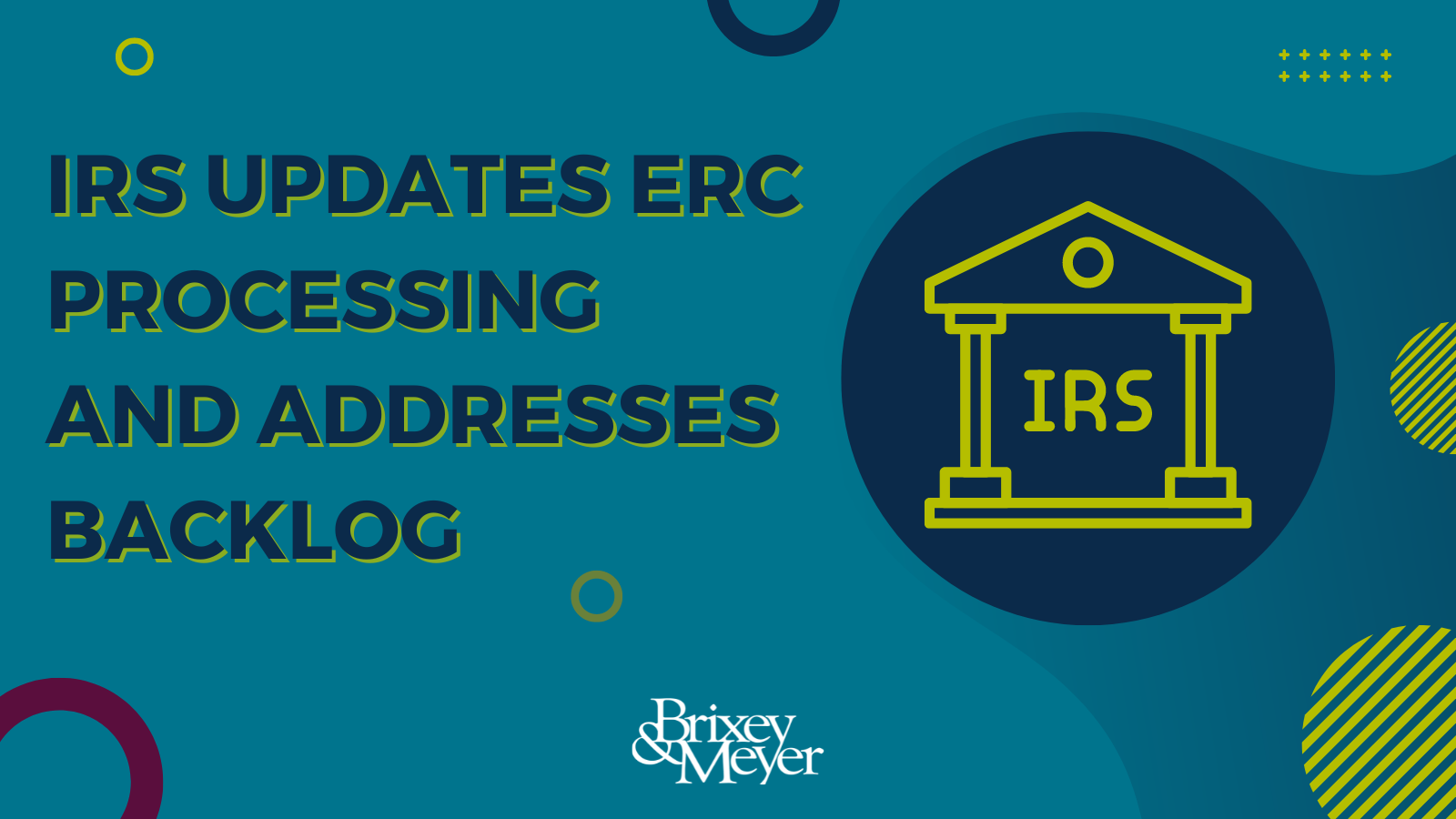IRS Updates ERC Processing and Addresses Backlog
On June 20, 2024, the IRS issued news release IR-2024-169 announcing the next stage of Employee Retention Credit (ERC) processing. The IRS conducted a detailed review of more than one million ERC claims representing more than $86 billion filed. Based on their review, the IRS provided updates on the status of its ERC claims processing and announced new measures to address the backlog of ERC claims in its system.
During this process, the IRS identified between 10% and 20% of claims fall into what the agency has determined to be the highest-risk group, which show clear signs of being erroneous claims for the pandemic-era credit. Tens of thousands of these will be denied in the weeks ahead. This high-risk group includes filings with warning signals that clearly fall outside the guidelines established by Congress.
In addition to this highest risk group, the IRS analysis also estimates between 60% and 70% of the claims show an unacceptable level of risk. For this category of claims with risk indicators, the IRS will be conducting additional analysis to gather more information with a goal of improving the agency’s compliance review, speeding resolution of valid claims while protecting against improper payments.
At the same time, the IRS continues to be concerned about small businesses waiting on legitimate claims, and the agency is taking more action to help. Between 10% and 20% of the ERC claims show a low risk. For those with no eligibility warning signs that were received prior to last fall’s moratorium, the IRS will begin judiciously processing more of these claims.
The IRS anticipates some of the first payments in this group will go out later this summer. However, the IRS emphasized these will go out at a dramatically slower pace than payments that went out during the pandemic period given the need for increased scrutiny.
As the additional IRS processing work begins at a measured pace, other claims will begin being paid later this summer following a final review. This additional review is needed because the submissions may have calculation errors made during the complex filings. For those claims with calculation errors, the amount claimed will be adjusted before payment.
The IRS also noted that generally the oldest claims will be worked first, and no claims submitted during the moratorium period will be processed at this time.
The IRS news release also indicated that the IRS continues to advocate for Congress to pass legislation ending additional ERC claims as well as extend the statute of limitations on assessment on these claims. Legislation proposed at the beginning of 2024 included a six-year period for IRS review from the date of the refund check, as opposed to the standard three years from the date of the claim. This additional time would be a boon to the IRS who has thousands of claims to review with a very short time left to do it – the statute of limitation on assessment for 2020 periods expired in April 2024 and the period for 2021 claims will expire in April 2025.
Let us know if you have any questions or if you want to talk to one of our tax experts!

